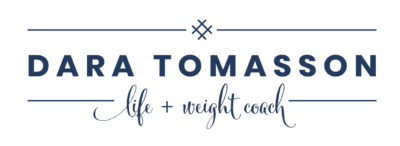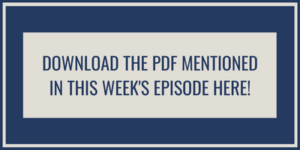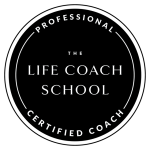 In this episode, we delve into the influence of childhood perceptions on present behavior, particularly in how people spoke about you during your formative years. We explore the profound impact these comments can have on your current relationship with food and how we care for ourselves. Often, we underestimate the lasting effects of such remarks on our well-being.
In this episode, we delve into the influence of childhood perceptions on present behavior, particularly in how people spoke about you during your formative years. We explore the profound impact these comments can have on your current relationship with food and how we care for ourselves. Often, we underestimate the lasting effects of such remarks on our well-being.
I encourage you to take a moment in this episode to reflect on past experiences, to identify where you might have formed beliefs that limit you today. Embracing our emotions fully is key, as it can significantly improve self-perception and diminish the tendency to engage in unhealthy habits like overeating. Tune in to discover the empowering potential of harnessing our mind power to achieve weight loss goals and authentically embrace our true selves.
If you are ready to lose weight and change the way you think about hunger, sign up for the lifetime access membership for Love Yourself Thin! Doors are open and you can find all the information by clicking here.
What You’ll Learn from this Episode:
- The effect that childhood labels can have on us throughout our lives.
- How to begin unlocking your mind power for emotional healing.
- The power behind allowing and honoring emotions.
Listen to the Full Episode:
Featured on the Show:
- If you are ready to lose weight and change the way you think, sign up for the lifetime access membership for Love Yourself Thin! Doors are open and you can find all the information by clicking here.
- Leave me a review in Apple
Full Episode Transcript:
135. Weight Loss and Mind Power
How would your family and friends describe you as a kid? What are the words that they would use? Would they use shy, funny, enthusiastic, silly, daredevil? All right, so today’s episode we’re going to dive into weight loss and mind power. My name is Dara Tomasson, and this is Love Yourself Thin, episode one-thirty-five. Weight Loss and Mind Power.
Okay, so today we’re gonna talk about how the way people talked about you as a kid influenced the way you act now and how that impacts your body and the way that you treat food. And I’m really excited to dive into this. Now before we do, I do want to share the ripple effects of what happens with Love Yourself Thin members when they do this work. So at the beginning of every Love Yourself Thin call, we always do a celebration because I’m helping, as you know, helping them learn how to truly show up for themselves and the impact. Now I’m going to share the impact of one of the members. So one of the members in Love Yourself Thin has decided to become a life coach and she was able to get certified as a life coach. And she has been able to work with a lady. And in that work that she’s done, that lady has changed her marriage, changed her relationship with her children, and really changed her relationship with her mother and that impacts her husband, her children, her mother, like all these people are now feeling more empowered in their own life because they have learned about better boundaries. They have learned about having honest conversations without feeling threatened. And so now she can go on vacation with her family, with her mother, and she’s not living in fear of things that they’re going to say or do because she just feels so much more empowered. So that’s a huge benefit. And so because this one member of Love Yourself Thin decided to be a life coach, and then she decided to put herself out there and coach other women, now their life has changed and then the people around them are changed, which is, is super fun.
I was thinking about this you know, we had, of course we had Covid and of, it’s the flu season, you know, we’re recording this for February. And you know, you think so, just like when you sneeze, you could pass on your germs and it’s like, and you can actually just because you’re living and you’re practicing these tools, your goodness it’s like good germs. Like they affect people in the best way possible. And so I love that this work that we’re doing just impacts everyone around us. So it’s so exciting.
All right, so if you haven’t printed off the worksheet, I am gonna, you know, invite you to do that because this is gonna help you to slow down and see what’s going on in your brain and to really dive into what’s happening for you. And the more that you can do this, the more the impact you can have for yourself. And you don’t have to feel so afraid of being you and you can truly step into your own power. That is my goal for all of you, and I really wanna encourage you to take advantage of that benefit because you know, we are, we are the ones who limit ourselves, and if we don’t use these tools, then we won’t be able to really get that transformation. And of course this is the kind of work we do every day inside Love Yourself Thin as we really look at our thoughts and question them and create new patterns, new ways of working through it.
Okay , so the first question I have is. You know, how would your family and friends describe you as a kid? So would they say that you were sensitive? That you were the emotional one? Think about how they would describe you versus your siblings if you had siblings. Like really look at like how they describe you. Now did they say that you were silly or funny or you couldn’t be taken seriously? Were you the class clown? You know, you have these actors and actresses that kind of get typecast and so even Harry Potter, oh my gosh, I love Harry Potter. But, you know, watching him in other roles, in other movies, it’s like what is he doing? That’s Harry Potter. Like, who does he think he Is? it’s so weird, right? And Ron Weasley and Hermione, like Hermione has been a little bit easier to transition, but you know how many of us get typecast in the way that our family described us? I once had this situation in my, in my own family where my brother said something about, you know, when I was a teenager or something and I just kinda looked at him and I was like yeah, but that was like 28 years ago. That was like so long ago. Like I think I’ve changed quite a bit in 28 years. Like, because, I mean, think about it, when you, with your families, you lived with them so many years ago, but but their memory of you was from that time because they haven’t spent the same amount of time, they haven’t really gotten to know that new version of you. And so that’s why family dynamics can be so challenging and difficult, especially during the holidays or when you get together because they are still looking at you through the lens of, oh, well that’s just silly Dara, or that’s just, you know, however they described you as a kid. And so understanding that’s really helpful because it gives you a little bit more compassion of like, oh, of course, of course you keep thinking of me that way because that was your experience with me. But you know, it has been like twenty-eight, 30 years since we’ve lived together and in that time I’ve definitely changed.
But I wanted to share, this was actually from a coaching call with one of my clients and it was very powerful and it, I really wanted to share this as an episode with you because the way that she grew up really shaped the way that she continues to look at herself, even in her fifties. So as a child, she was described as the emotional one, and because of that, she imagined that they were looking down on her because they didn’t value emotions and they, she said somehow there was a feeling like you need to be more level-headed and that you aren’t mature if you are driven by your emotions. She also was frustrated because there was this feeling that emotions are more than tears. And she knew that about herself. She knew that emotions were important. Emotions were there to guide us and direct us. And when you think about murderers and serial killers, they don’t have those emotions. They are cut off from them. And so that’s why they make these really terrible, horrible decisions. And, so she got this message that when you show emotions, you are less acceptable.
Now, of course I have all these different like childhood stories that come into my mind, and I think about the ugly duckling. So the ugly duckling, of course, it’s from the Hans Christian Anderson story and basically a mother’s duck’s eggs hatch. One of the ducklings is perceived by the other animals as an ugly little creature, suffers much verbal and physical abuse. He wanders from the barnyard and lives with wild ducks and geese until hunters slaughter the flocks. He finds a home with an old woman, but her cat and hen tease and taunt him mercilessly, and once again, he sets off alone. The duckling sees a flock of migrating wild swans. He is delighted and excited, but cannot join them because he is too ugly, young, and unable to fly. When winter arrives, a farmer finds and carries the freezing duckling home, but he is frightened by the farmer’s noisy children, and flees the house. The duckling spends a miserable winter alone outdoors, mostly hiding in a cave on the lake that partially freezes over. The duckling now having fully grown and matured cannot endure a life of solitude and hardship anymore, he decides to throw himself at a flock of swans. Feeling that it is better to be killed by such beautiful birds than to live a life of ugliness. He is shocked when the swans welcome and accept him only to realize by looking at his reflection in the water that he had been not a duckling, but a swan all this time. The flock takes to the air and he spreads his wings to take flight with the rest of his new family. So as you think about this story and there’s lots of different variations. Disney did their, their variation in 1939. But I want you to think about your identity and the way that you perceive yourself and the way that you look at yourself and how that influences the way that you show up.
Now what impact did the way people talk about you have on the way you acted then and now? And we talk about the skeletons in the closet but I want you to just ponder with me for a moment on what were some of those things that people said, you know, we read the story and I just read the, the Wikipedia version of the Duckling, but you know, first of all, the duckling he is perceived by the barnyard animals and they say, oh, you’re just so ugly. And then he goes, and he’s trying to live with these wild ducks and geese and then they are all killed by hunters. And so he’s, he’s rejected from them. And then he finds a home with an old woman, but the cat and the hen tease him. So he’s constantly getting rejected or feeling like he’s not good enough. And then he doesn’t handle the farmer’s children, and then he’s by himself. And so he has these over and over again, these experiences where people are rejecting him in some way. And I’m curious for yourself, how many times in your childhood, you know, did you try maybe to make friends with somebody? Or maybe there was something like your grandmother said, or an uncle or maybe a neighbor that made a comment like, you have chubby cheeks, or your eyes are slanted, or whatever that is, that made you feel like it wasn’t safe being you. And so I want to invite you just to just pause with me for a moment. Just let your brain kind of scan. I, I often imagine we’re watching a video of our life scan through that and what were some of those experiences that felt scary to you? That felt like people were rejecting you for the way that you looked or the way that you acted. You know, maybe they said, you know, you, you weren’t quite appropriate. You didn’t quite know what to say properly. So think about that, and then how does that impact you? How does that impact your relationships with food and the way that you care for your body?
So the other day I was looking on Instagram and I, you know, I of course like these different people I follow on Instagram. They’re my Instagram friends. And and some of them I know in person and, and some of them I don’t. And this one Instagram friend, her son got hit by a car. It was so sad. Like this older senior driver wasn’t paying attention and he actually broke her son’s leg. It was so sad. And then it was interesting because she posted that somebody had brought her a bunch of ice cream and treats. And I thought, that’s really interesting the way that, you know, how do we cope with things? How do we address the issues? How do we care for each other? How do we nurture each other? How do we show love and consideration and kindness? And how often does that turn into sugar? Now I’m not saying it’s wrong to bring food to people’s houses. I for sure have brought food. I, I do buy treats for my kids. I’m not saying that like sugar’s the enemy and that you’re a terrible person, but I’m just curious of, of how often is that the go-to? Versus, you know, just spending time with people and having to like take a burden off.
I remember one Christmas this was when we lived in Red Deer and we renovated our house. Like that was, we redid everything. It was crazy. And we were really pushing it to get the kitchen in order for Christmas. And I was really maxed out. I hired the wrong person for the basement drywall. It was a disaster and the guy really messed up. Did a terrible, terrible job. And so I had to fire him and I had to hire this new person, but he only would work for us if my husband and I and I, I’m pretty sure my son was old enough to help us, but we had to commit to sanding down the huge mess that this guy had made, and it was a, it was a nightmare. And I remember just calling a friend and just saying like, I just need some help. And she and another lady came over and they wrapped presents for me for a good three hour, well I don’t know if it was three hours, but I think it was maybe a solid hour ’cause there was three of us and we just went for it. And that’s what I needed. And the funniest part was. She, when she wrote the labels for all the presents, she wrapped my husband’s presents and she would write things like, to the hunk of Hunk of Burning Love. And she wrote like, oh, so many silly things. And I didn’t even, I didn’t even look. And so at Christmas morning he was like, oh, thanks, Dara. But anyways, that’s just a side note because that’s what I needed at the time. You know, sometimes, you know, sugar is appropriate, but really it was, I needed someone to help me wrap the presents, so, because I had so much that was going on.
All right, so let’s go back to the purpose of this podcast episode is really looking at our mind power. Now just like with energy, we have, I don’t know where you live, but we have this you can get an energy audit. So you can call someone and they will come into your home and they will look at your window panes. They will look at your roof. They will actually, they have tools that help you see where are you leaking energy. And then after they do that energy audit, then they will make suggestions on how you can conserve energy, how can you save on your electricity bill and all of that. And so when I was coaching this member of Love Yourself Thin, I was thinking about this leak that she has that she doesn’t even realize because she has this thought, I’m the emotional one. And when she has the thought, I’m the emotional one. She feels like she’s looked down on or letting her emotions control her. She feels like she needs to be more level headed. She doesn’t feel like she’s as mature because she’s so emotional, and then she feels like emotions are more than tears. And then she feels like she can’t really show her emotions because then she becomes less acceptable. And then because she feels so embarrassed about her emotions, she’s avoiding resisting and reacting. And so then her emotions they take over and then she doesn’t really feel in control and because she doesn’t feel in control, what she tries to do to manage that is by overeating. And so overeating helps her feel like she can kind of distract herself or minimize her emotions. And at the end of the coaching, she realized that her emotions are what feed her. And she said, emotions feed who I am and when I avoid them, I don’t ever feel settled. And that was such huge insight.
And it was interesting to me, she’s been having a lot of problems with her, her tears, and she just feels like she, like her eyes are just always leaking. And she went to the eye doctor and one of the things that I, I said, well, maybe we need to be allowing every time we feel an emotion just to allow it. And I have to say that one of the things that has really changed for me when I have allowed myself all these emotional tools and feeling all the feelings is I cry very easily and I don’t, I don’t worry about it. Like I can talk, right now my daughter is serving a mission for my church and it means that she is gone for 18 months. And that’s a long time. And I do talk to her once a week and I can message her during the week and she can respond minimally. But it is really, really hard because she’s kind of my person and we done tons together. And even when she went away for university, we would call each other, like FaceTime once or twice a day. And you know, she would be walking home from school and she was, it’s late at night or dark and, you know, make sure that she was safe and she would sing and, oh, just, it was just really fun. Just really fun to be with her and I really missed her and so I just cry. I just, I will, I just let myself cry. It’s just, I’m like, yep, I miss my daughter. And I just let myself be sad and I just let myself experience all of those emotions.
So just to conclude this episode, I want to just invite you to reflect on are you allowing yourself to be you or are you fighting like the ugly duckling who feels like they don’t have a place? And I want to invite you to just absolutely honor who you are. When you feel sad, just let yourself cry, because I can tell you those people who fight it, that’s when they become depressed. They make things worse. All right. It was such a pleasure to share this episode with you, and of course, I always love to hear all your feedback and again when you feel your emotions, you, then you allow yourself to be who you are and you no longer need to distract yourself with food, with busyness, or any of those other ways that do not actually solve the problem, but only make it worse. All right. Take care. Have a nice day. Bye.







